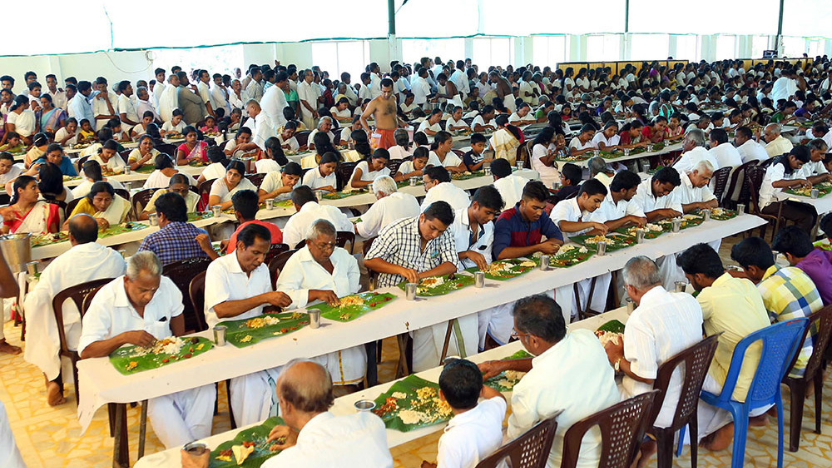Annadanam, the act of offering food to others, has always been considered a sacred and selfless service in temple culture. It is not merely about providing nourishment but about fostering a deep connection with fellow human beings through love, devotion, and total involvement. However, recent incidents have sparked concerns regarding how this practice is being carried out in some temples.
A particular temple recently faced backlash after reportedly asking devotees to leave the hall during an Annadanam, stating that the food was reserved exclusively for family, friends, and relatives.
This incident, which has surfaced online, has led to widespread criticism, with netizens questioning the ethics of such practices and why the issue has not been addressed earlier. Reports suggest that this is not an isolated case, as those distributing the food reportedly failed to consider the needs of elderly devotees and children.
With that being said, Annadanam is not just about feeding people; it is an act of compassion and inclusivity. This selfless act should transcend boundaries of family or social ties, creating a space where everyone is welcomed and nurtured equally.

To AVOID any misunderstandings and ensure the sanctity of Annadanam, temple management and devotees can adopt the following measures:
One thing is for sure - Annadanam lies in humility and selflessness. By serving others with love and devotion, devotees are given a unique opportunity to be givers of life. Indeed, a role that is deeply meaningful. When someone receives food from you, they place you in a position of respect and trust. This sacred bond should not be diminished by exclusivity or favouritism.
It is crucial for temples to revisit their practices to ensure that the true spirit of Annadanam is upheld, fostering inclusivity and devotion in its purest form. Let this sacred act continue to be a symbol of unity and compassion, embodying the values it represents.
Image Credit : Gokarna Puja, AIM for Seva
A particular temple recently faced backlash after reportedly asking devotees to leave the hall during an Annadanam, stating that the food was reserved exclusively for family, friends, and relatives.
This incident, which has surfaced online, has led to widespread criticism, with netizens questioning the ethics of such practices and why the issue has not been addressed earlier. Reports suggest that this is not an isolated case, as those distributing the food reportedly failed to consider the needs of elderly devotees and children.
With that being said, Annadanam is not just about feeding people; it is an act of compassion and inclusivity. This selfless act should transcend boundaries of family or social ties, creating a space where everyone is welcomed and nurtured equally.

To AVOID any misunderstandings and ensure the sanctity of Annadanam, temple management and devotees can adopt the following measures:
- For family or private events such as weddings or engagements, set up separate dining areas and clearly label them as private gatherings. Avoid using the term "Annadanam" for these occasions.
- If the intention is to provide food to all, clearly label it as "free food" or "Annadanam," ensuring no one feels excluded.
- Temple management can arrange separate dining areas or schedules for general Annadanam and private gatherings to prevent confusion and conflict.
One thing is for sure - Annadanam lies in humility and selflessness. By serving others with love and devotion, devotees are given a unique opportunity to be givers of life. Indeed, a role that is deeply meaningful. When someone receives food from you, they place you in a position of respect and trust. This sacred bond should not be diminished by exclusivity or favouritism.
It is crucial for temples to revisit their practices to ensure that the true spirit of Annadanam is upheld, fostering inclusivity and devotion in its purest form. Let this sacred act continue to be a symbol of unity and compassion, embodying the values it represents.
Image Credit : Gokarna Puja, AIM for Seva







